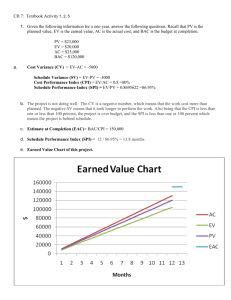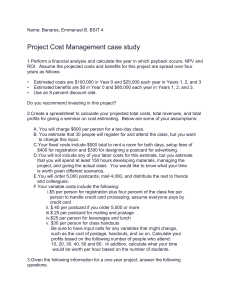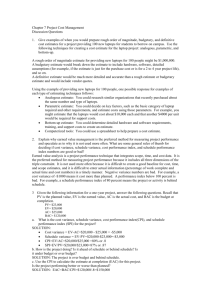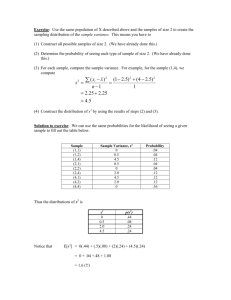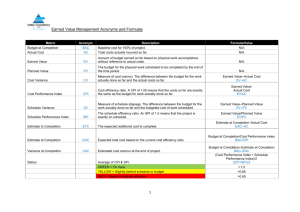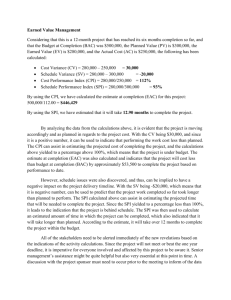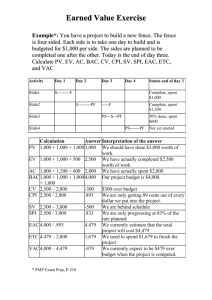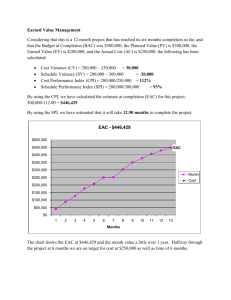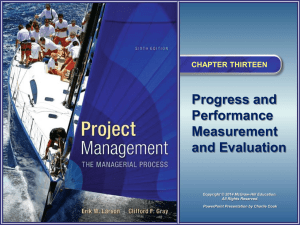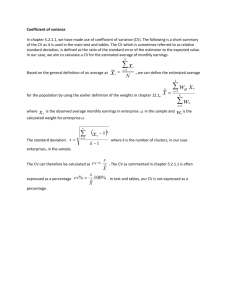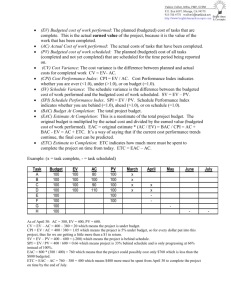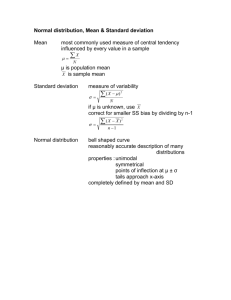Given the following information for a one
advertisement
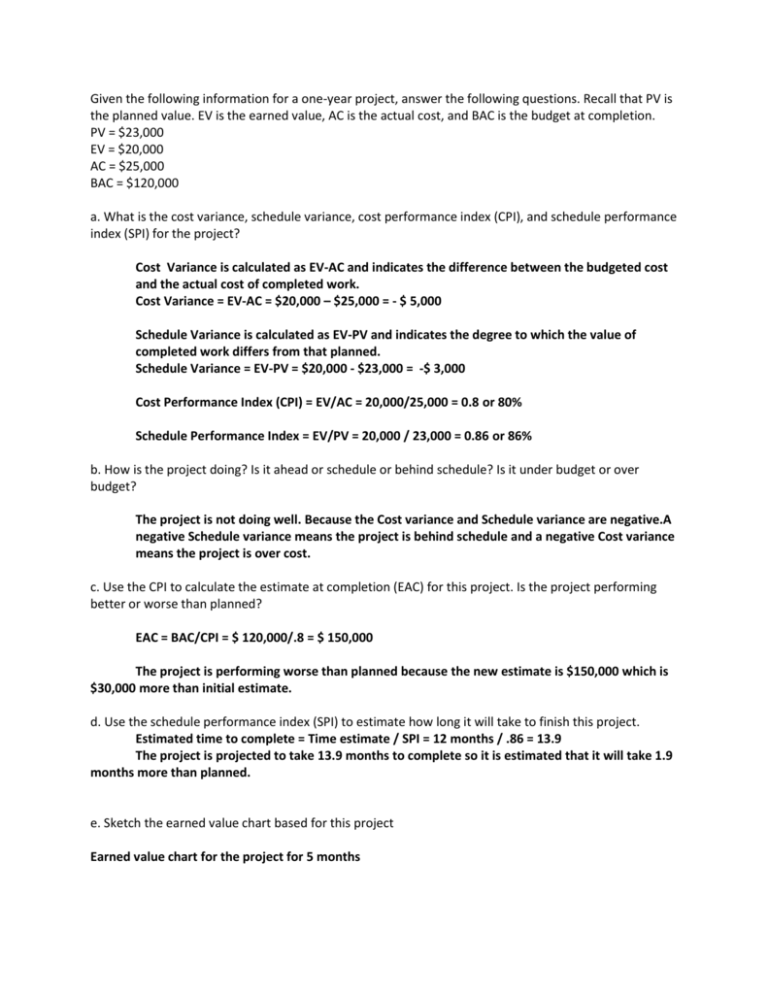
Given the following information for a one-year project, answer the following questions. Recall that PV is the planned value. EV is the earned value, AC is the actual cost, and BAC is the budget at completion. PV = $23,000 EV = $20,000 AC = $25,000 BAC = $120,000 a. What is the cost variance, schedule variance, cost performance index (CPI), and schedule performance index (SPI) for the project? Cost Variance is calculated as EV-AC and indicates the difference between the budgeted cost and the actual cost of completed work. Cost Variance = EV-AC = $20,000 – $25,000 = - $ 5,000 Schedule Variance is calculated as EV-PV and indicates the degree to which the value of completed work differs from that planned. Schedule Variance = EV-PV = $20,000 - $23,000 = -$ 3,000 Cost Performance Index (CPI) = EV/AC = 20,000/25,000 = 0.8 or 80% Schedule Performance Index = EV/PV = 20,000 / 23,000 = 0.86 or 86% b. How is the project doing? Is it ahead or schedule or behind schedule? Is it under budget or over budget? The project is not doing well. Because the Cost variance and Schedule variance are negative.A negative Schedule variance means the project is behind schedule and a negative Cost variance means the project is over cost. c. Use the CPI to calculate the estimate at completion (EAC) for this project. Is the project performing better or worse than planned? EAC = BAC/CPI = $ 120,000/.8 = $ 150,000 The project is performing worse than planned because the new estimate is $150,000 which is $30,000 more than initial estimate. d. Use the schedule performance index (SPI) to estimate how long it will take to finish this project. Estimated time to complete = Time estimate / SPI = 12 months / .86 = 13.9 The project is projected to take 13.9 months to complete so it is estimated that it will take 1.9 months more than planned. e. Sketch the earned value chart based for this project Earned value chart for the project for 5 months
